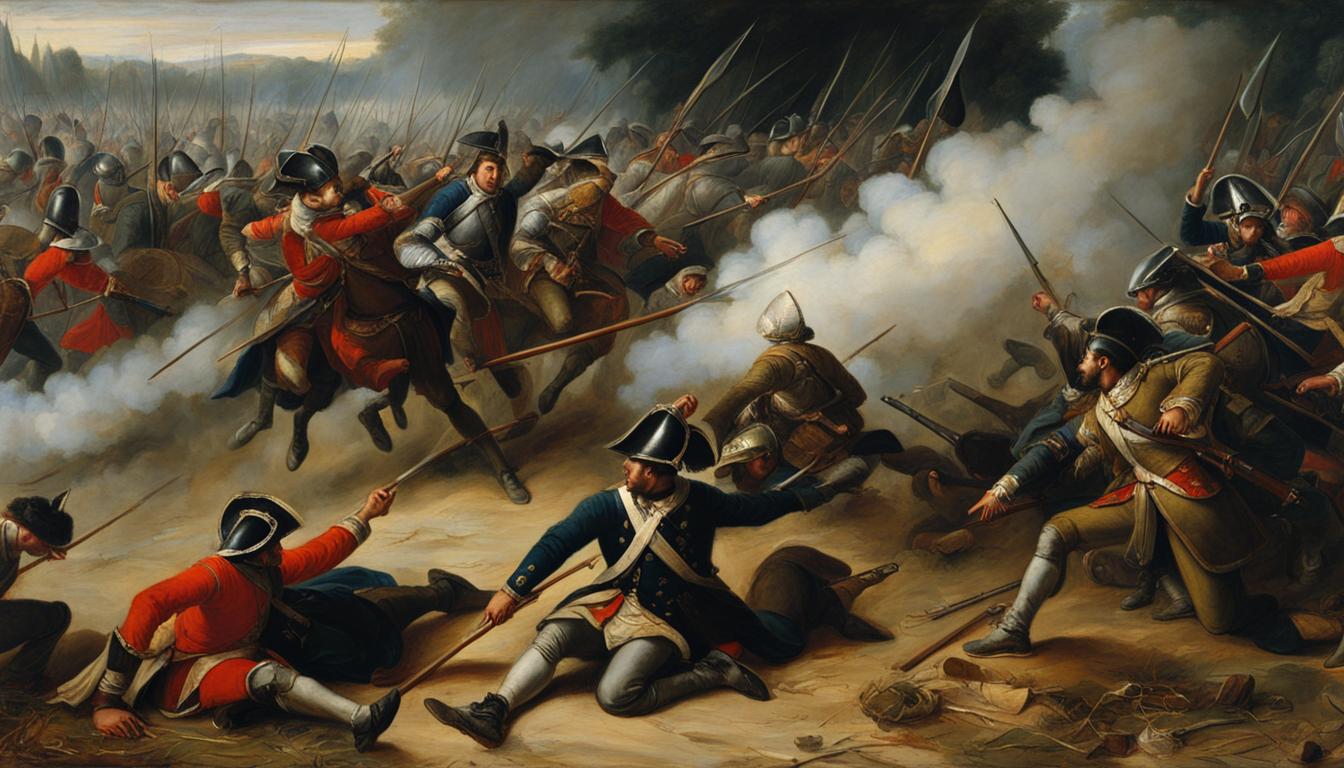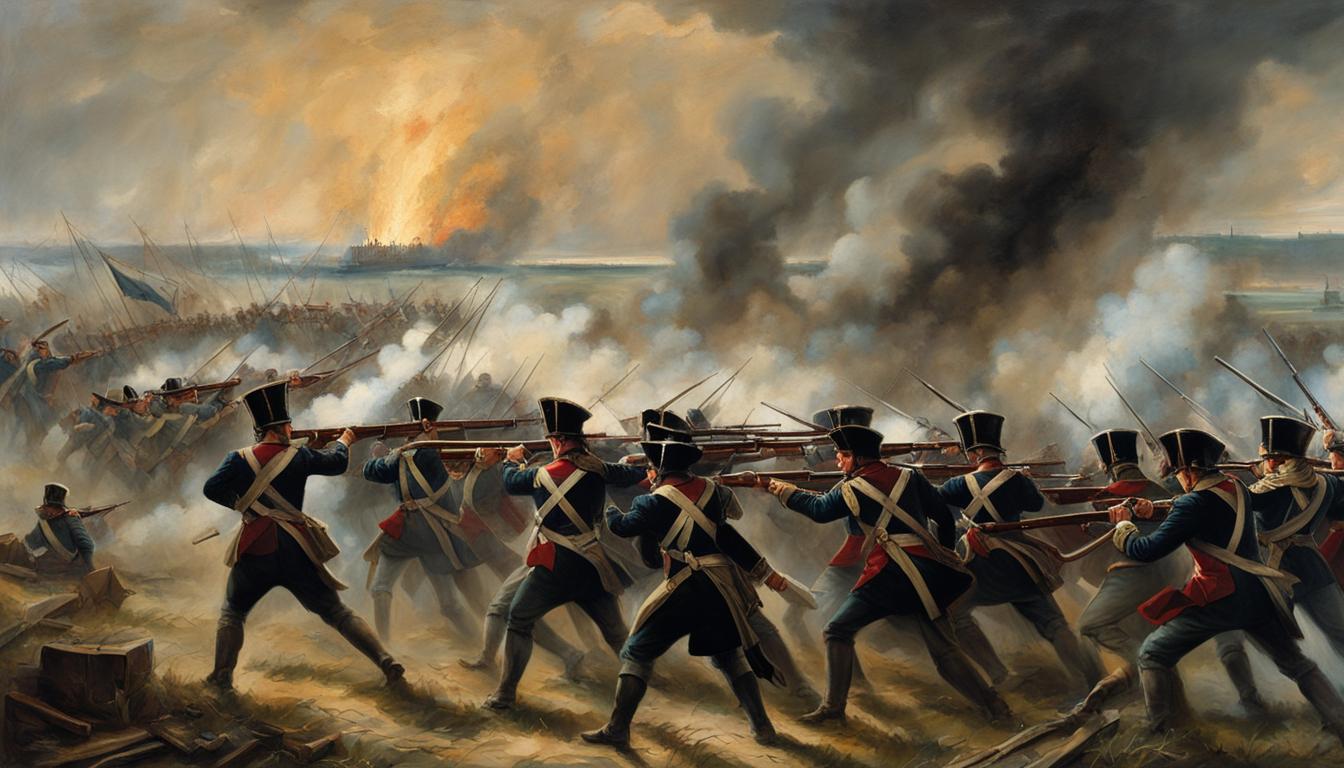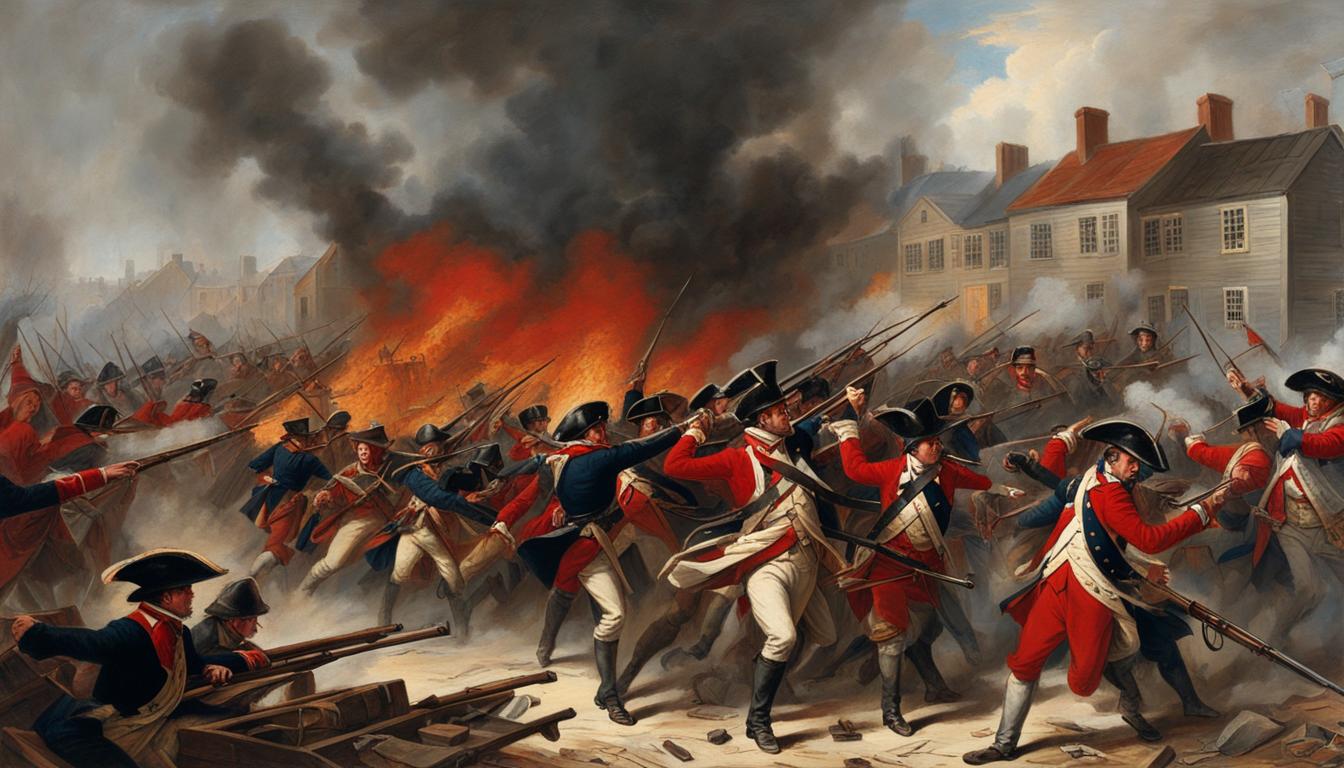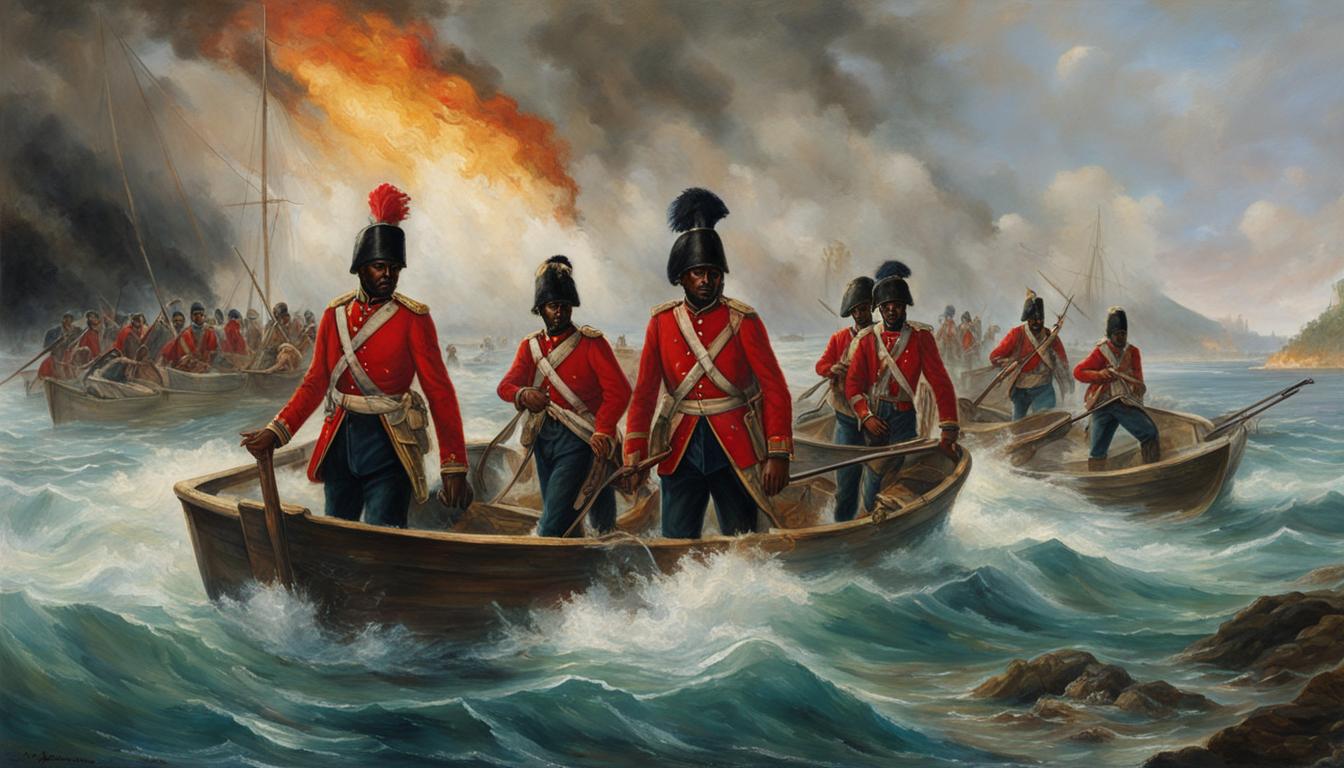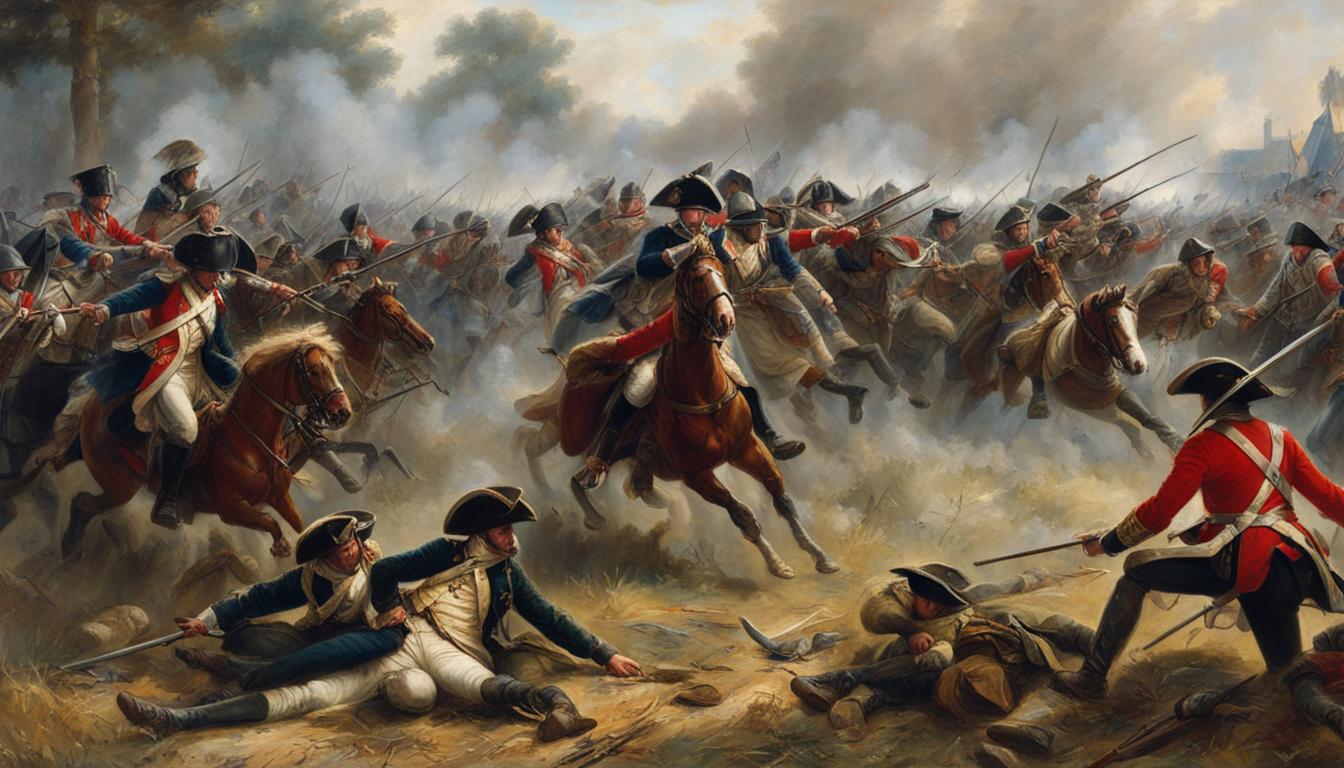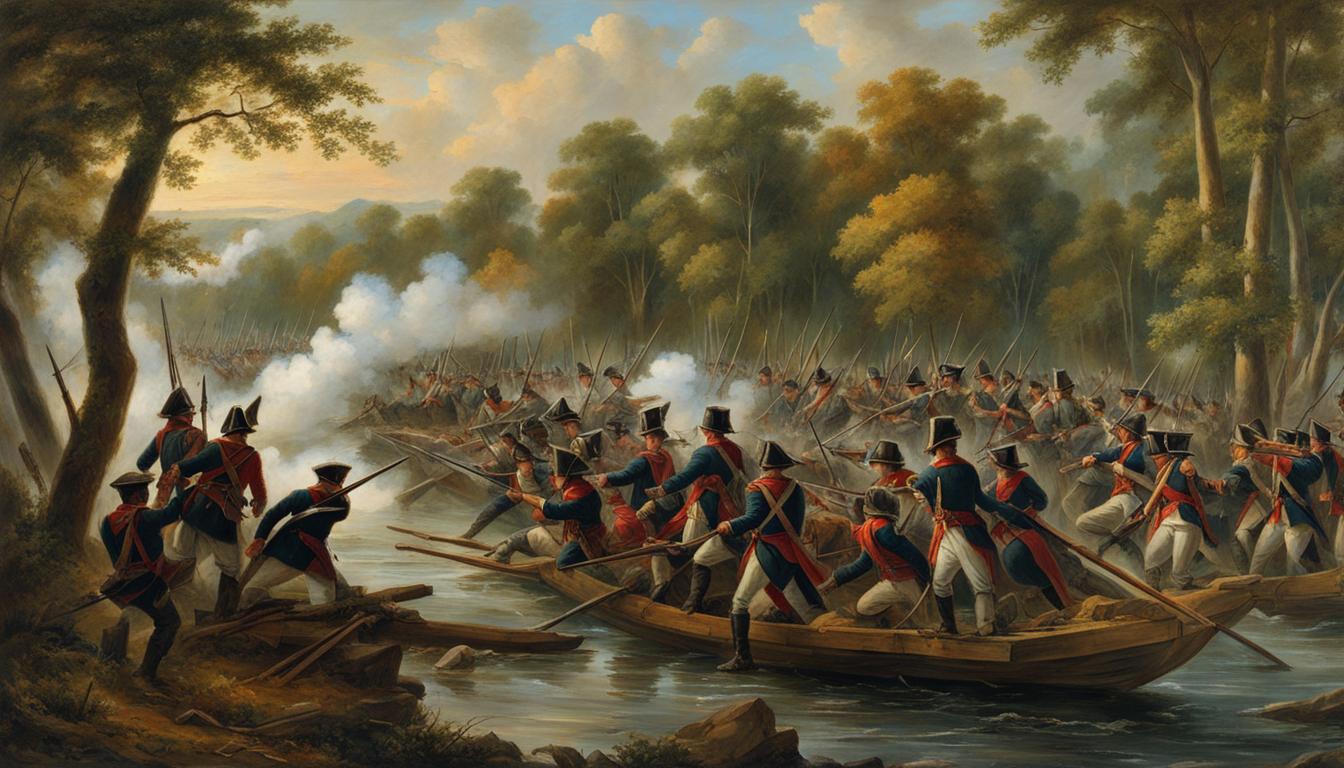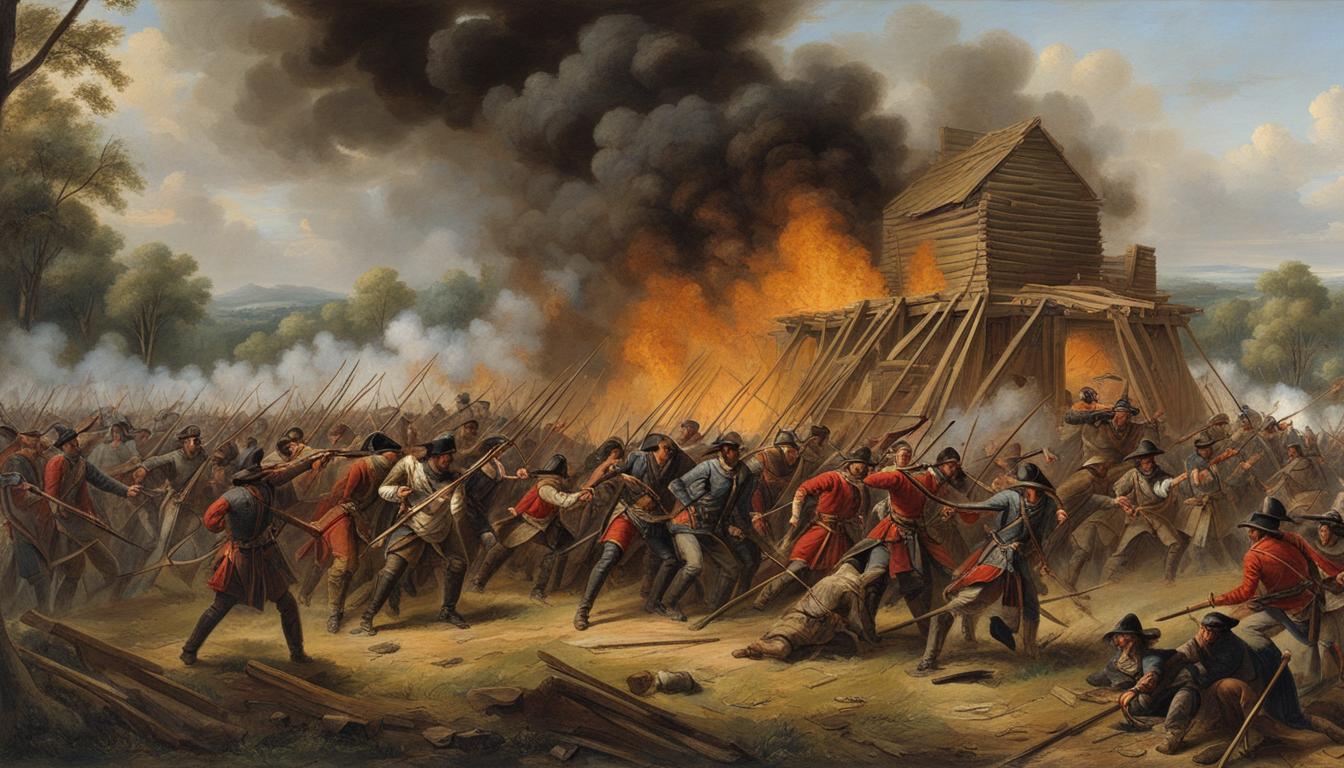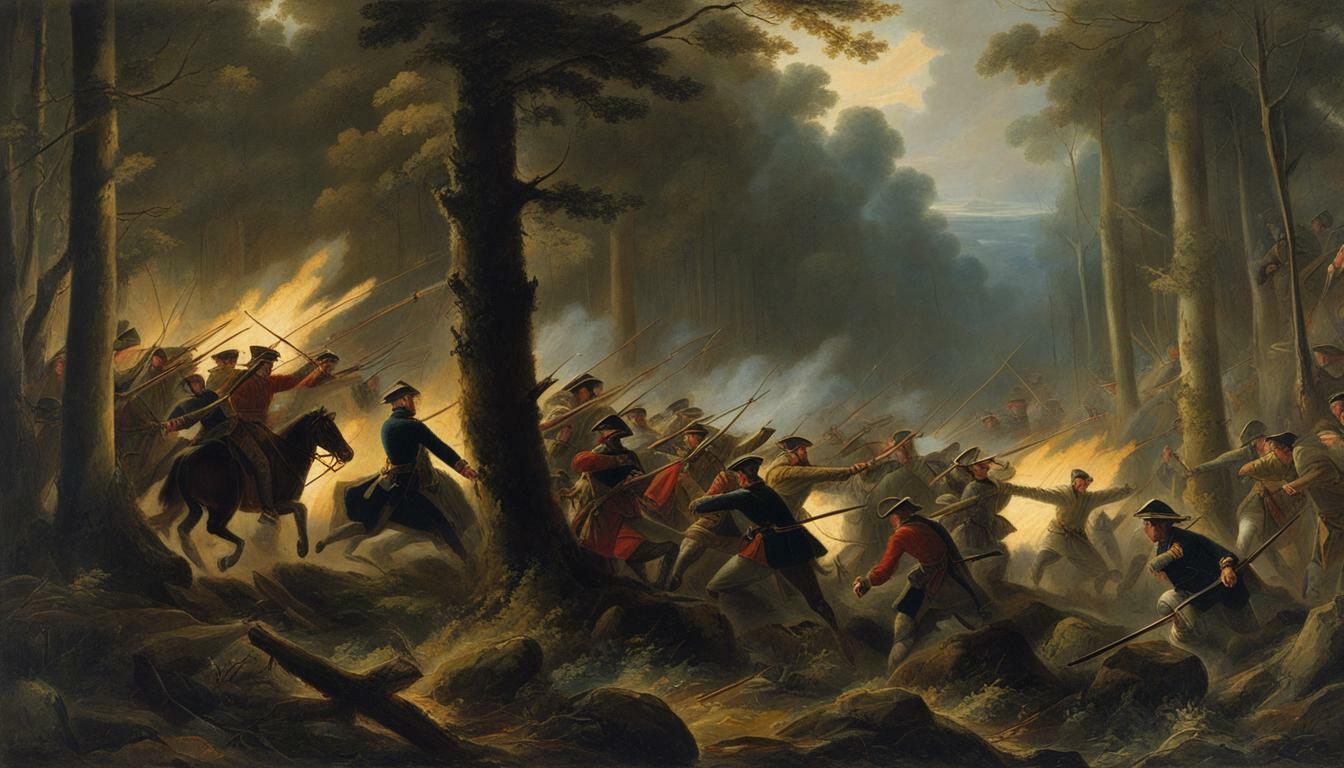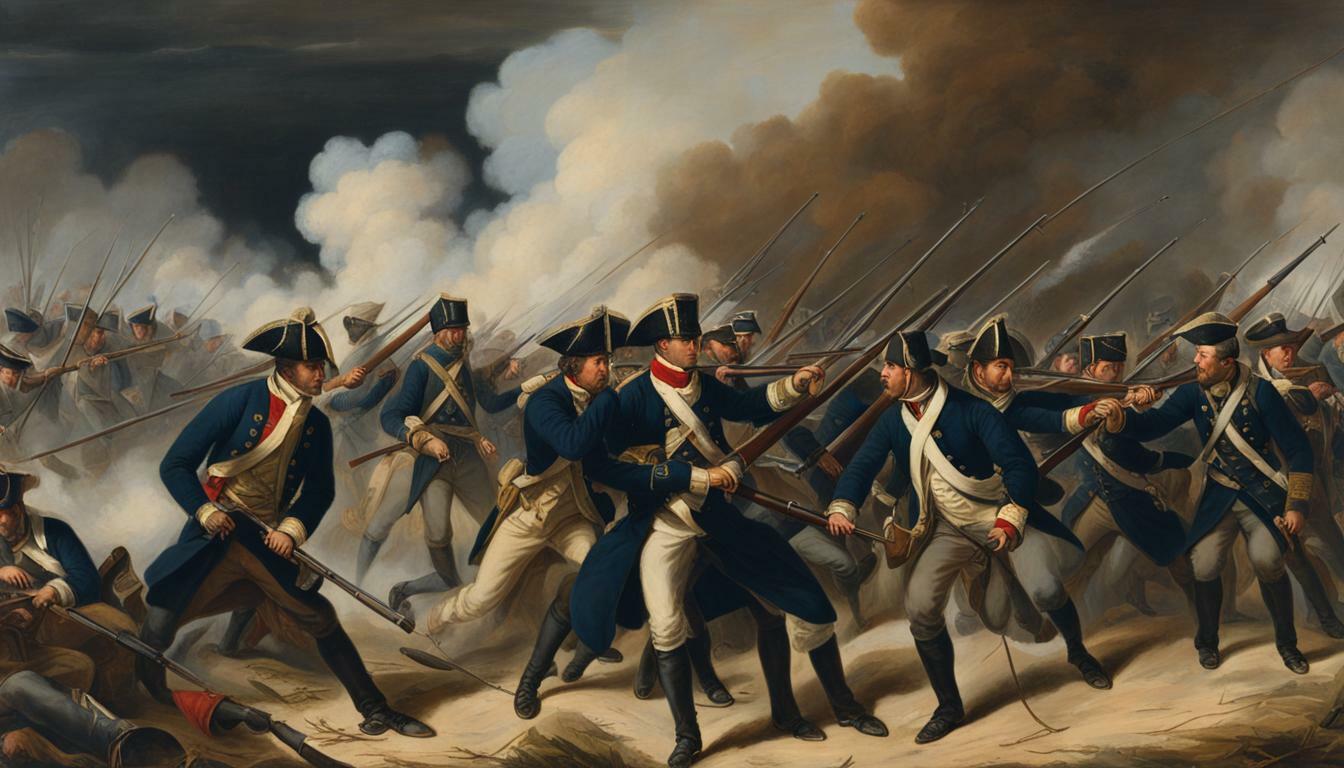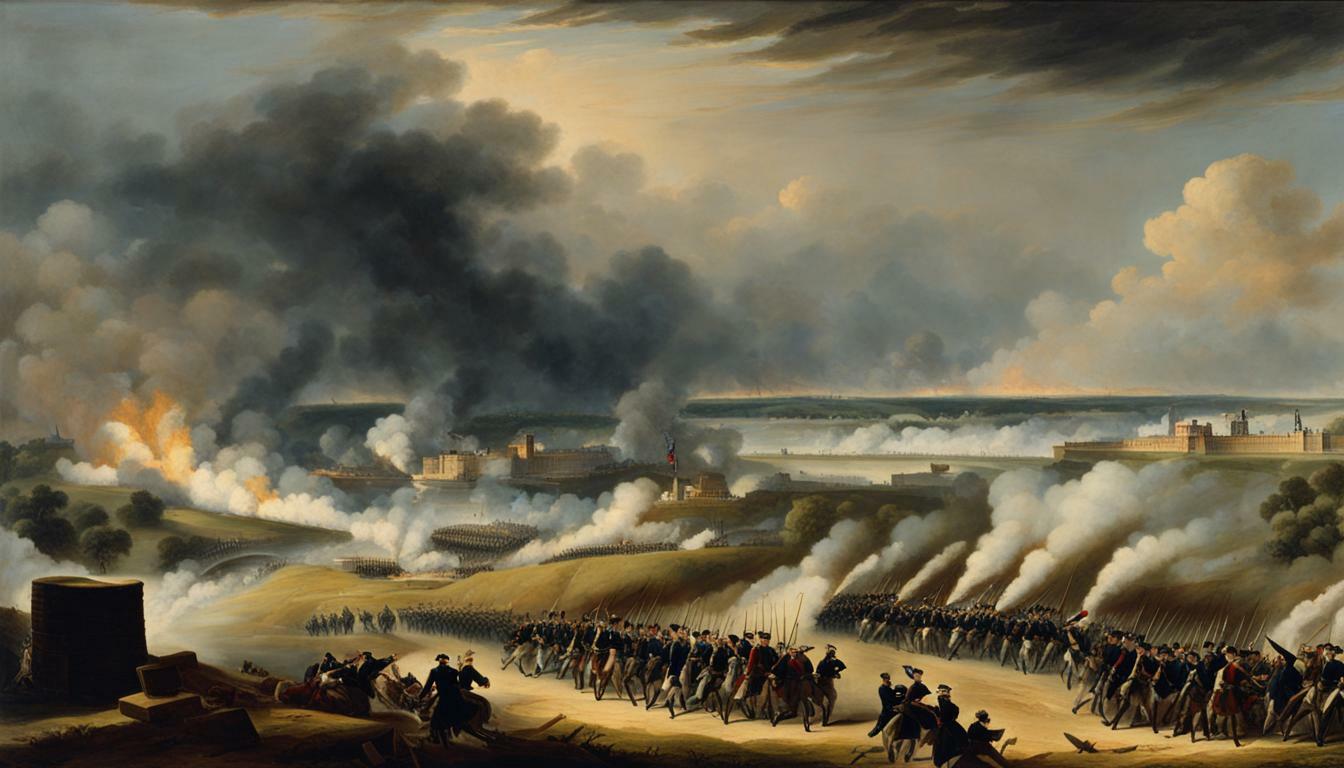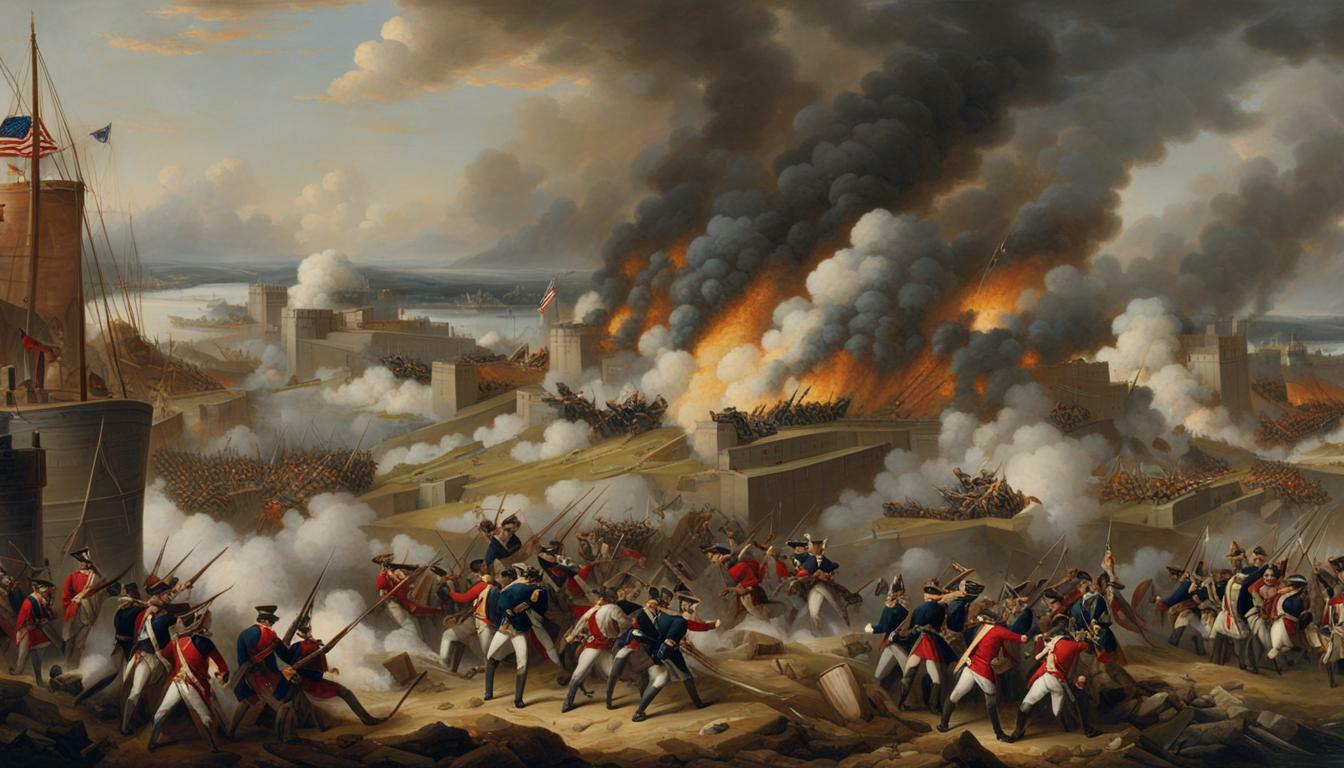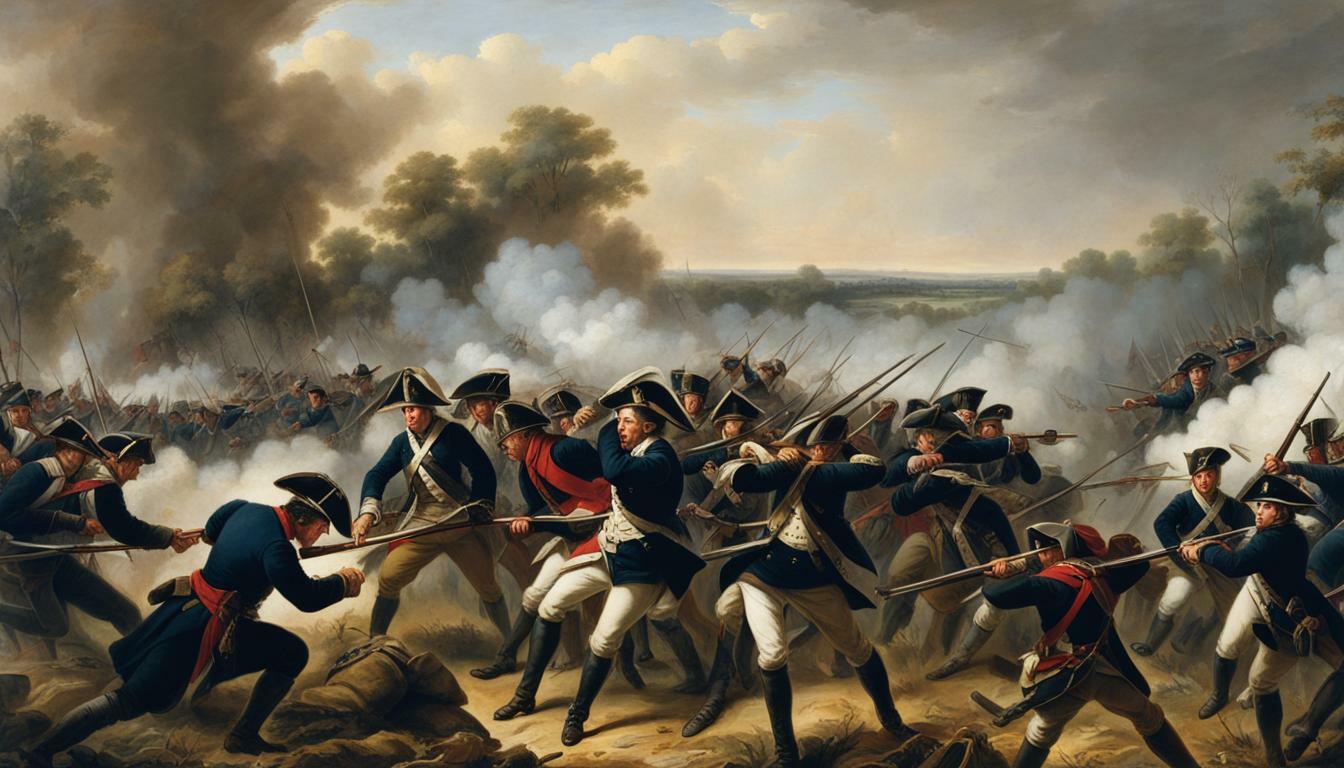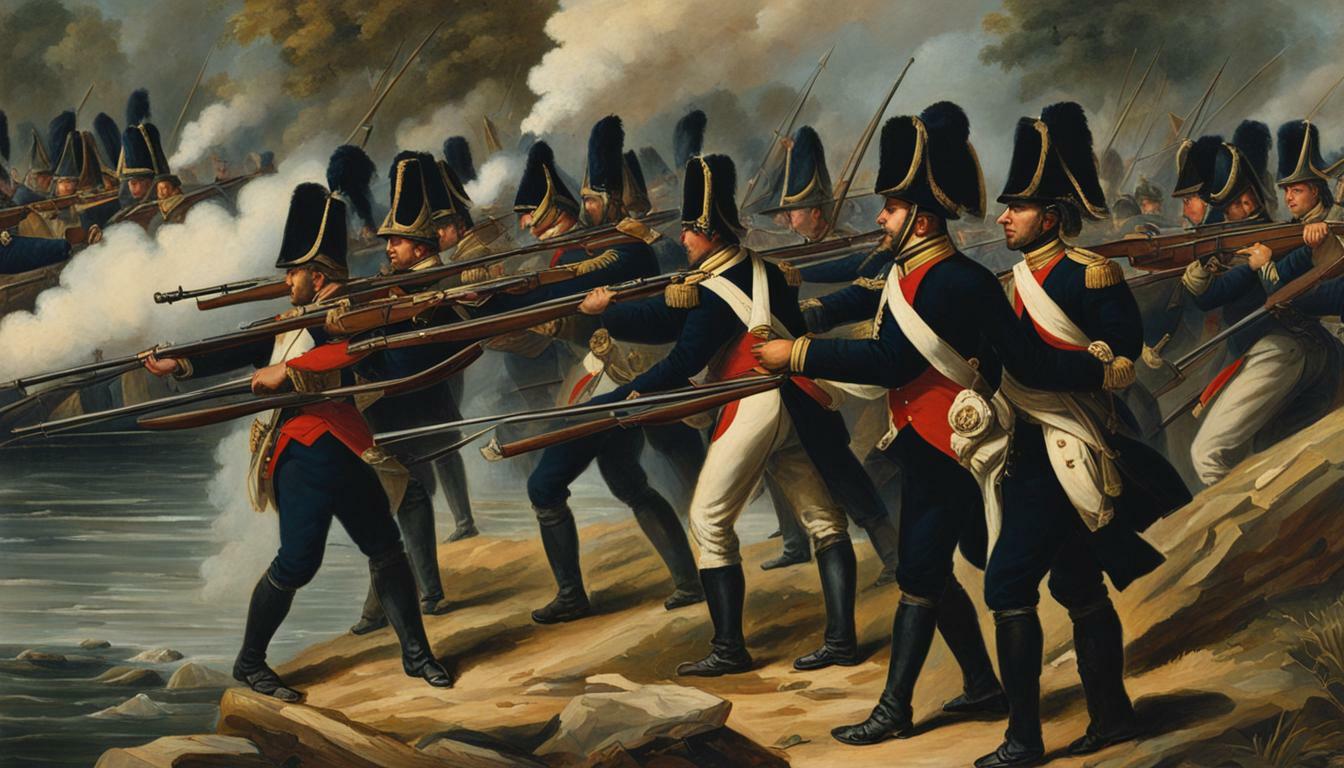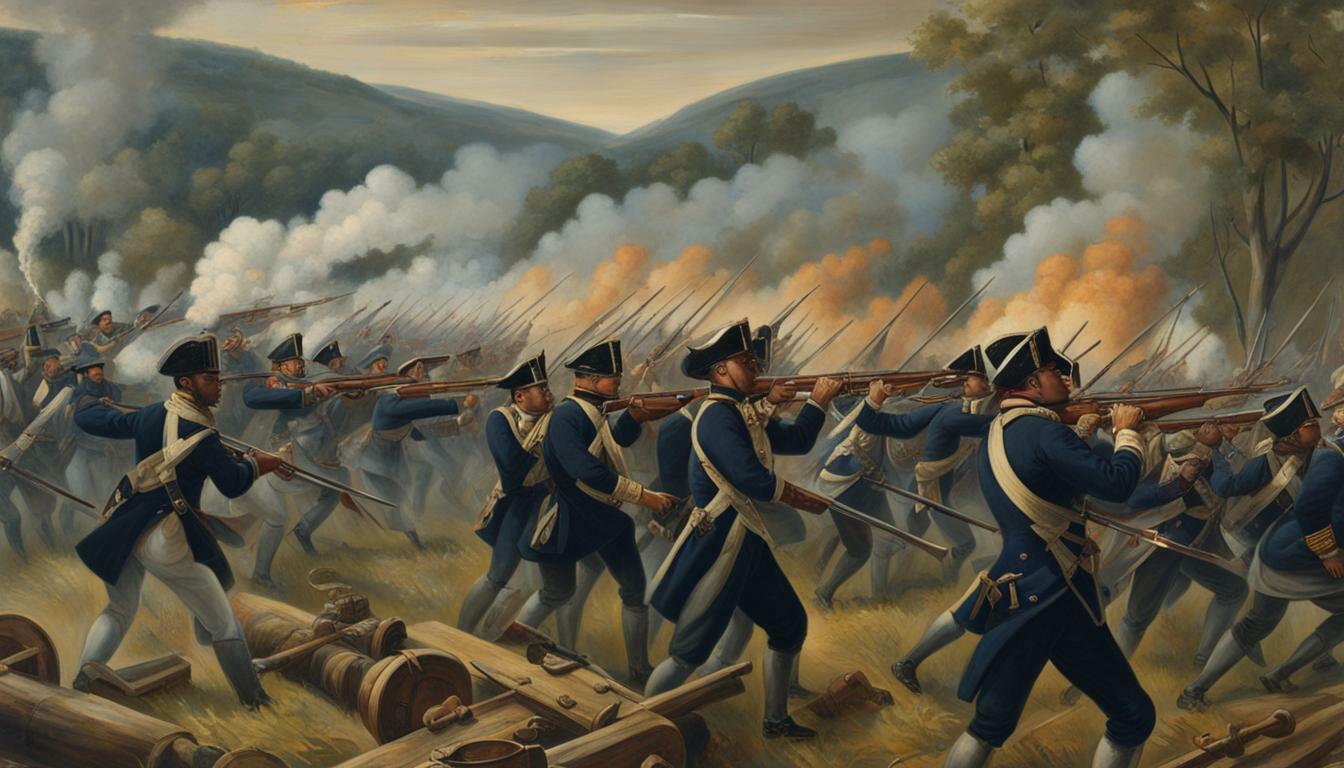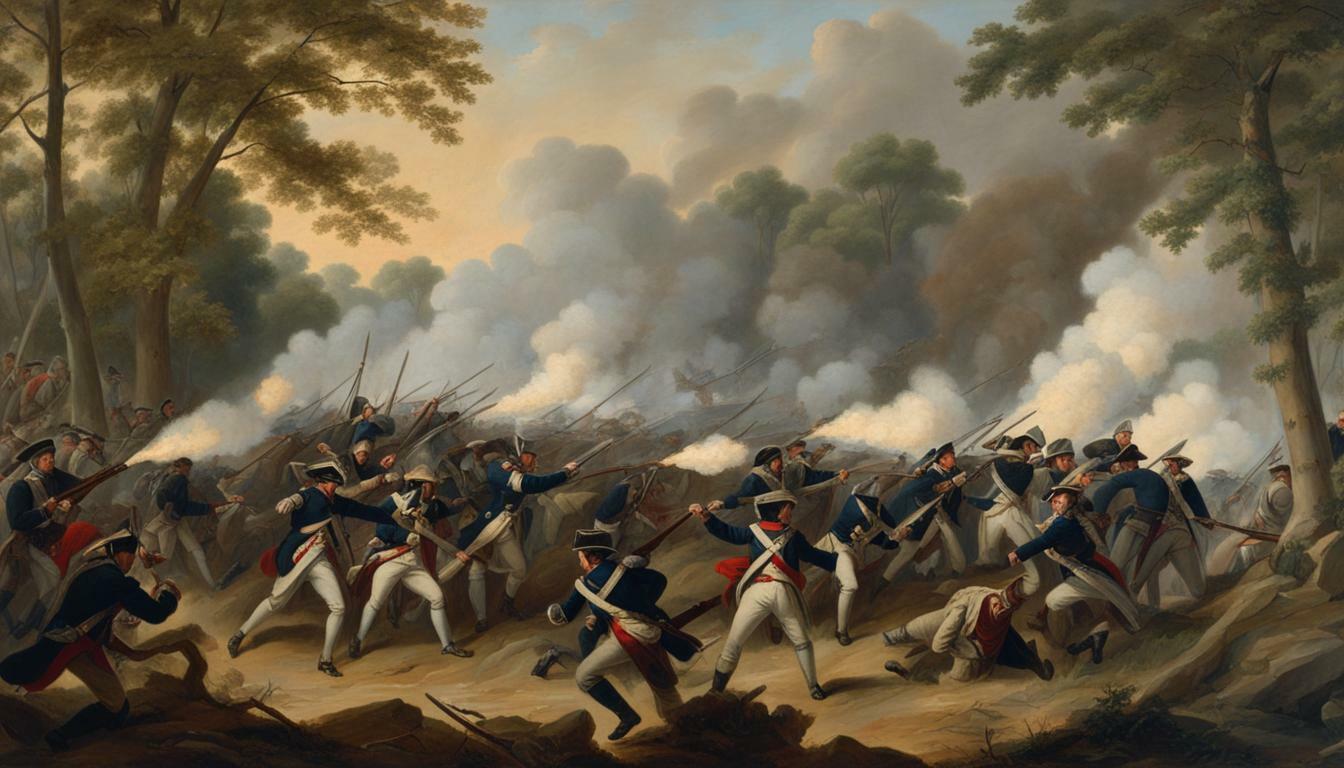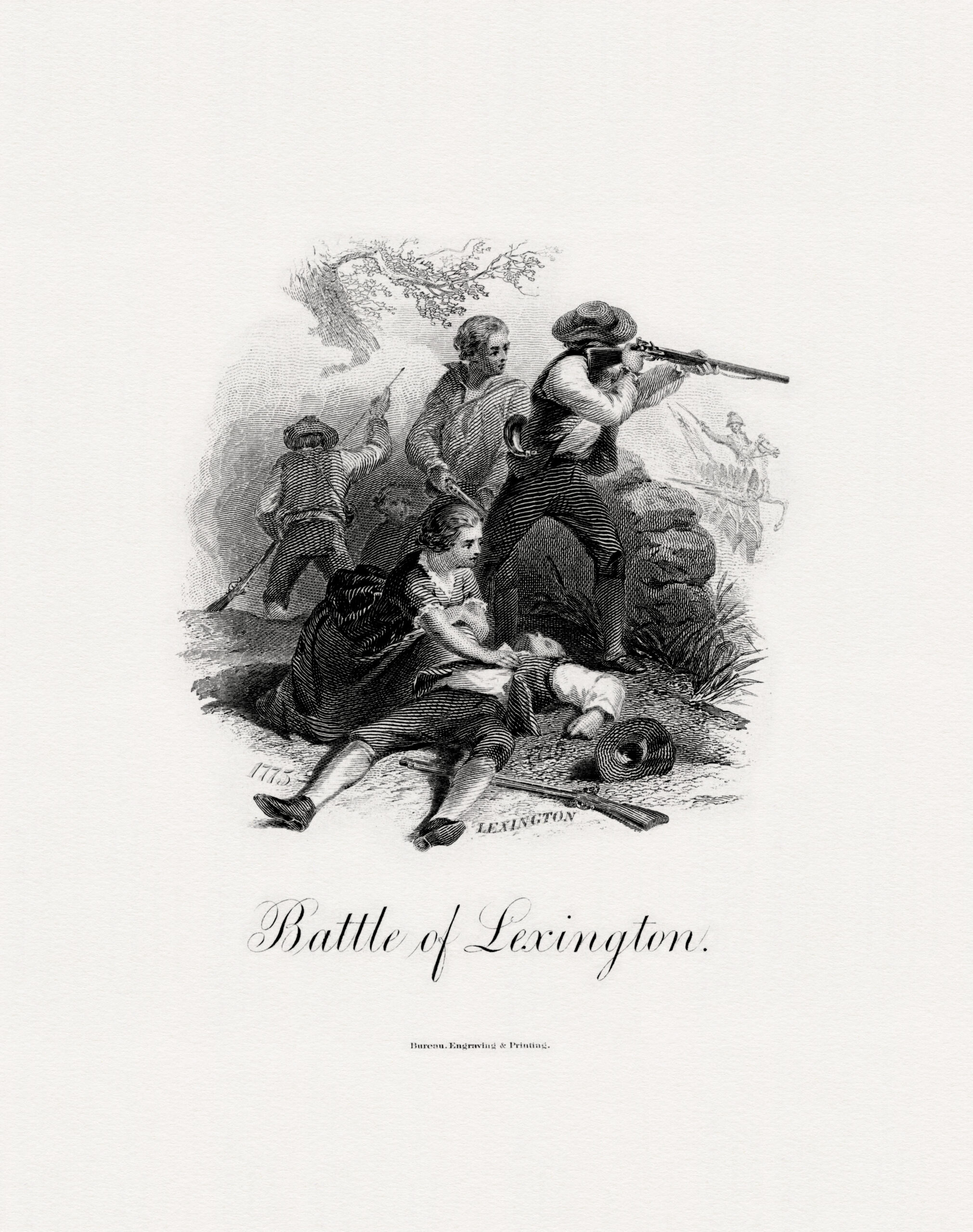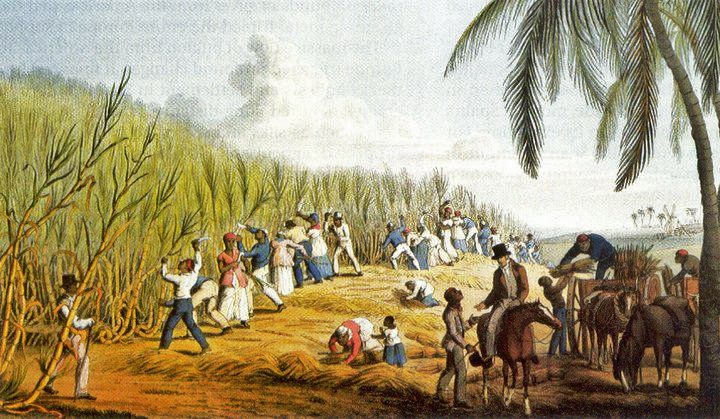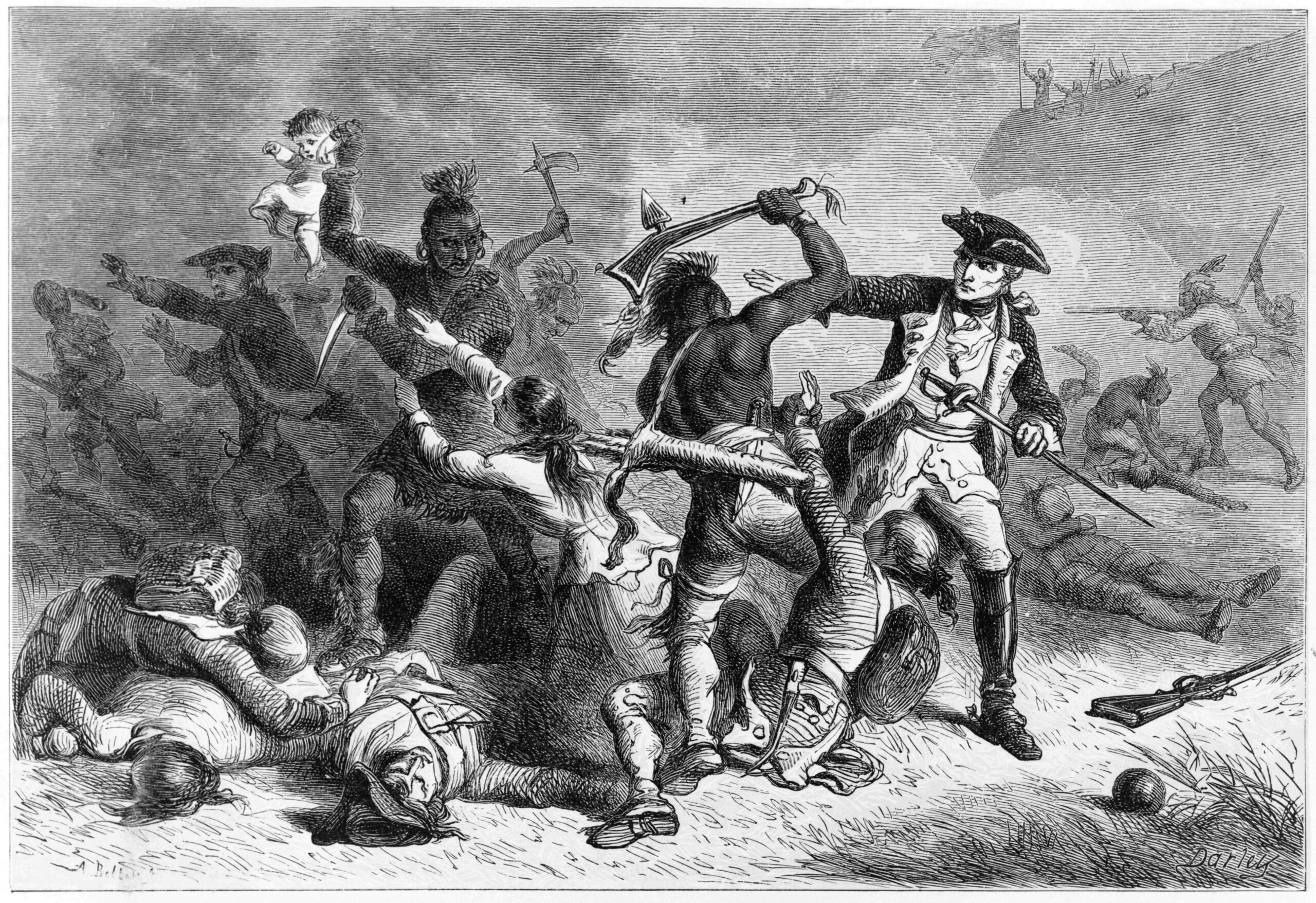Revolutionary War
Invasion of Dominica: A Pivotal Event in Revolutionary War History
On September 7, 1778, the French successfully invaded Dominica, a British West Indies territory, marking a critical event in the American Revolutionary War. This significant operation was conducted by the French under the leadership of François Claude Amour, marquis de Bouillé before the British were aware that France had allied with America.… Continue Reading
Exploring Grey’s Raid: A Turning Point in the Revolutionary War
Often overlooked in the annals of Revolutionary War history, Grey’s Raid nonetheless represents a critical turning point in the American struggle for independence. From September 5-12, 1778, Major-General Charles Grey’s British troops carried out a series of devastating attacks on the coastal towns of New Bedford and Fairhaven, as well as the undefended Martha’s Vineyard.… Continue Reading
Battle of Wyoming: A Dark Day in Revolutionary War History
The Battle of Wyoming, a pivotal event in the American Revolutionary War, took place on July 3, 1778, in the picturesque Wyoming Valley of present-day Luzerne County, Pennsylvania.… Continue Reading
Battle of Alligator Bridge: A Key Moment in American Revolutionary War
The Battle of Alligator Bridge, which unfolded on June 30, 1778, is an event that holds great significance in the history of the American Revolutionary War.… Continue Reading
Battle of Monmouth: A Turning Point in the Revolutionary War
The Battle of Monmouth holds a significant place in Revolutionary War history, as it marked a crucial point where the Continental Army, under General George Washington, showcased its resiliency and improved capabilities in a fierce standoff against the British Army, commanded by General Sir Henry Clinton.… Continue Reading
Battle of Paoli: A Fateful Night in Revolutionary War History
On September 20, 1777, in present-day Malvern, Pennsylvania, a small but significant battle left its mark on America’s fight for independence. The Battle of Paoli, also known as the Paoli Massacre, exemplified the harsh realities of conflict during the Revolutionary War.… Continue Reading
Battle of the Clouds: Revolutionary War’s Fateful Encounter
The Battle of the Clouds, a significant event in Revolutionary War history, was an aborted confrontation between British and American forces due to a torrential downpour that left both armies struggling through treacherous conditions.… Continue Reading
Battle of Brandywine: The Revolutionary War’s Turning Point
The Battle of Brandywine proved to be a key engagement in the American Revolution, featuring the largest single-day battle of the war encompassing nearly 30,000 soldiers on a vast 35,000-acre battlefield.… Continue Reading
First Siege of Fort Henry: The Pivotal 1782 Conflict
The First Siege of Fort Henry played a crucial role in Revolutionary War history, as it unfolded between September 11 and 13, 1782 in the Ohio Country at present-day Wheeling, West Virginia.… Continue Reading
Battle of Setauket: A Glimpse into Revolutionary War History
The Battle of Setauket draws attention to a key moment in Revolutionary War history, when Continental Army troops launched an attack on Loyalist fortifications in Setauket, New York.… Continue Reading
Battle of Bennington: A Turning Point for American Independence
On August 16, 1777, the Battle of Bennington marked a crucial victory in the American Revolutionary War as part of the Saratoga campaign. Fought in Walloomsac, New York, the American forces, primarily New Hampshire and Massachusetts militiamen led by General John Stark and reinforced by the Green Mountain Boys under Colonel Seth Warner, decisively defeated a detachment from General John Burgoyne’s British army.… Continue Reading
Battle of Hubbardton: A Turning Point in the American Revolution
The Battle of Hubbardton, fought on July 7, 1777, was a pivotal clash in the Saratoga campaign of the American Revolutionary War. Occurring in Hubbardton, Vermont—a disputed territory known as the New Hampshire Grants—this engagement marked the only battle in Vermont during the revolution.… Continue Reading
Unfurling the Sails: The First Battle of Ushant
The First Battle of Ushant stands as a pivotal moment in naval warfare and the broader historical contexts of both the American Revolutionary War and the Anglo-French War.… Continue Reading
The Battle of Newport: Decisive Moments in the American Revolution
On August 29, 1778, the Battle of Newport, a significant event in the American Revolution, took place on Aquidneck Island. Also known as the Battle of Rhode Island, this conflict marked the first attempt at cooperation between French and American forces following France’s entry into the war as an American ally.… Continue Reading
Exploring Grey’s Raid: A Turning Point in the Revolutionary War
Often overlooked in the annals of Revolutionary War history, Grey’s Raid nonetheless represents a critical turning point in the American struggle for independence. From September 5-12, 1778, Major-General Charles Grey’s British troops carried out a series of devastating attacks on the coastal towns of New Bedford and Fairhaven, as well as the undefended Martha’s Vineyard.… Continue Reading
Invasion of Dominica: A Pivotal Event in Revolutionary War History
On September 7, 1778, the French successfully invaded Dominica, a British West Indies territory, marking a critical event in the American Revolutionary War. This significant operation was conducted by the French under the leadership of François Claude Amour, marquis de Bouillé before the British were aware that France had allied with America.… Continue Reading
Battle of Monmouth: A Turning Point in the Revolutionary War
The Battle of Monmouth holds a significant place in Revolutionary War history, as it marked a crucial point where the Continental Army, under General George Washington, showcased its resiliency and improved capabilities in a fierce standoff against the British Army, commanded by General Sir Henry Clinton.… Continue Reading
Siege of Fort Stanwix: A Pivotal Struggle in the American Revolution
The Siege of Fort Stanwix, a crucial event in Revolutionary War history, took place from August 2 to August 22, 1777, in what is now New York.… Continue Reading
Battle of Fort Ann: Key Moment in Revolutionary War History
Fought on July 8, 1777, the Battle of Fort Ann holds an important place in Revolutionary War history. This key historical battle took place in Fort Ann, New York, and was part of the larger Saratoga campaign during the American Revolution.… Continue Reading
Battle of Alligator Bridge: A Key Moment in American Revolutionary War
The Battle of Alligator Bridge, which unfolded on June 30, 1778, is an event that holds great significance in the history of the American Revolutionary War.… Continue Reading
Siege of Boonesborough: A Turning Point in Frontier America
The Siege of Boonesborough, a pivotal battle in Revolutionary War history, unfolded from September 7 to September 18, 1778, in Kentucky, culminating in a triumphant American defense.… Continue Reading
Battle of Hubbardton: A Turning Point in the American Revolution

The Battle of Hubbardton, fought on July 7, 1777, was a pivotal clash in the Saratoga campaign of the American Revolutionary War. Occurring in Hubbardton, Vermont—a disputed territory known as the New Hampshire Grants—this engagement marked the only battle in Vermont during the revolution.… Continue Reading
Siege of Fort Ticonderoga: Key Chapter in the American Revolution

The Siege of Fort Ticonderoga, a pivotal event in the American Revolution, took place from July 2 to July 6, 1777 near Lake Champlain, New York.… Continue Reading
Meigs Raid: The Revolutionary Strike on Sag Harbor
Meigs Raid, also known as the Battle of Sag Harbor, was a pivotal operation during the American Revolutionary War. Taking place on May 24, 1777, under the command of Colonel Return Jonathan Meigs, American forces targeted a British Loyalist foraging party in Sag Harbor, New York.… Continue Reading
The Battle of Ridgefield: A Pivotal Moment in American Revolutionary War History
On April 27, 1777, a significant event unfolded during the American Revolutionary War in the form of the Battle of Ridgefield. This battle, taking place in the Connecticut colony, was part of the larger New York and New Jersey campaign of 1776–1777.… Continue Reading
Battle of Bound Brook: A Pivotal Skirmish in the American Revolutionary War
As a lesser-known yet strategically significant engagement during the American Revolutionary War, the Battle of Bound Brook took place on April 13, 1777, in Bound Brook, New Jersey.… Continue Reading
Battle of Punk Hill: A Crucial Skirmish in America’s Fight for Independence
The Battle of Punk Hill, a lesser-known skirmish in the Revolutionary War history, took place on 8 March 1777 in Bonhamtown, New Jersey. It was a minor American victory that involved General William Maxwell commanding militia against a British force led by General William Howe.… Continue Reading
Exploring the Forage War: Revolutionary War History Unveiled
The Forage War was a series of minor skirmishes that unfolded in New Jersey from January to March 1777, succeeding the significant battles at Trenton and Princeton.… Continue Reading
Battle of Iron Works Hill: The Unheralded Turning Point in American Independence
The Battle of Iron Works Hill, also known as the Battle of Mount Holly, holds an often overlooked but pivotal place in the timeline of American independence.… Continue Reading
Ambush of Geary
The Ambush of Geary, also known as the Amwell Skirmish, was a pivotal moment during the American Revolutionary War. On December 14, 1776, the skirmish took place in Amwell Township, New Jersey, and forever changed the course of the war.… Continue Reading
Battle of Fort Lee
The Battle of Fort Lee, a pivotal moment in Revolutionary War history, took place on November 20, 1776. This historical battle site, located in Bergen County, New Jersey, holds significant importance in American history.… Continue Reading
Battle of Fort Washington
The Battle of Fort Washington, a pivotal event during the American Revolution, showcased the strategic significance of fortifications and marked a turning point in the war’s saga.… Continue Reading
Battle of Fort Cumberland
The Battle of Fort Cumberland, also known as the Eddy Rebellion, was a significant historical battle that took place in November 1776 in Fort Cumberland, Nova Scotia.… Continue Reading
Battle of White Plains
The Battle of White Plains was a pivotal event during the American Revolutionary War, fought on October 28, 1776. After retreating from New York City, George Washington’s Continental Army established a position in the village of White Plains.… Continue Reading
Battle of Mamaroneck
The Battle of Mamaroneck, also known as the Skirmish of Heathcote Hill, was a significant event in American history during the Revolutionary War. It took place in October 1776 in Westchester County, New York.… Continue Reading
Battle of Valcour Island
The Battle of Valcour Island was a crucial naval skirmish that occurred during the American Revolutionary War in 1776. Fought on Lake Champlain, it was one of the first naval battles of the war and played a significant role in shaping American history.… Continue Reading
Battle of Harlem Heights
The Battle of Harlem Heights was a pivotal event in the American Revolution, where the Continental Army, led by General George Washington, achieved a morale-boosting victory against the British Army in the heart of New York City.… Continue Reading
Landing at Kip’s Bay
The Landing at Kip’s Bay holds immense historical importance as a pivotal event in the American Revolutionary War. Taking place on September 15, 1776, this British amphibious landing marked a turning point in the conflict, shaping the course of history for both the British and American forces.… Continue Reading
Battle of Long Island
The Battle of Long Island, also known as the Battle of Brooklyn, was a crucial conflict in the American Revolutionary War that took place on August 27, 1776.… Continue Reading
Enlightenment Thinkers and their impact on American Revolution
The Age of Enlightenment
The Age of Enlightenment was a period when reason and rationality propelled humanity forward. Its thinkers were instrumental in shaping American Revolution, leading to the creation of a new nation.… Continue Reading
Battle of Lexington and Concord: The Shot Heard ‘Round the World
On April 19th, 1775, the first shot of the American Revolutionary War was fired in the Battle of Lexington and Concord. General Percy led British troops in search of colonial weapons and ammunition in Massachusetts Bay.… Continue Reading
The Sugar Act of 1764: History & Significance
French and Indian War: The First World War
The French and Indian War, also known as the Seven Years’ War, was a significant conflict that occurred between the French forces of New France and the British forces of the Thirteen Colonies, with the support of their respective Native American allies, including the Iroquois Confederacy.… Continue Reading

